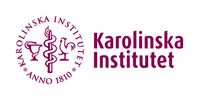Diabetes and cardiovascular disease increase dementia risk
People with at least two of the diseases type 2 diabetes, heart disease or stroke have double the risk of developing dementia. Prevention of diabetes and cardiovascular disease could therefore be a strategy for reducing dementia risk, a study from Karolinska Institutet in Sweden published in the journal Alzheimer’s & Dementia suggests.

Type 2 diabetes, heart diseases (ischemic heart disease, heart failure or atrial fibrillation) and stroke – so called cardiometabolic diseases – are some of the main risk factors for dementia.
“Few studies have examined how the risk of dementia is affected by having more than one of these diseases simultaneously, so that’s what we wanted to examine in our study,” says Abigail Dove, doctoral student at the Aging Research Centre, part of the Department of Neurobiology, Care Sciences and Society, Karolinska Institutet.
Dementia develops slowly over decades. It first manifests as gradual cognitive decline that only shows up in cognitive tests. It then degenerates into cognitive impairment in which the individual notices their failing memory but can still look after themselves, and finally into full-blown dementia.
More than one cardiometabolic disease doubles the risk
The researchers extracted data from the Swedish National Study on Aging and Care on a total of 2,500 healthy, dementia-free individuals over the age of 60 living on Kungsholmen in Stockholm. At the start of the study, the incidence of cardiometabolic diseases was assessed through medical records and clinical investigation. The participants were then followed for twelve years with medical examinations and cognitive tests in order to monitor changes in cognitive ability and the development of dementia.
The presence of more than one cardiometabolic disease accelerated the speed of cognitive decline and doubled the risk of cognitive impairment and dementia, expediting their development by two years. The magnitude of the risk was increased with a greater number of diseases.
“In our study, the combinations of diabetes/heart disease and diabetes/heart disease/stroke were the most damaging to cognitive function,” says Dove.
Prevention of a second disease important
However, individuals who had just one cardiometabolic disease did not display a significantly higher risk of dementia.
“This is good news. The study shows that the risk only increases once someone has at least two of the diseases, so it’s possible that dementia can be averted by preventing the development of a second disease.”
The correlation between cardiometabolic diseases and the risk for dementia was stronger in the participants who were under 78 years old.
“We should therefore focus on cardiometabolic disease prevention already in middle age, since the risk of cognitive failure and dementia appears higher among those who develop a cardiometabolic disease earlier in life,” says Dove.
Seeking to understand the mechanism
The researchers hope in future studies to learn more about the mechanism driving this correlation by examining the impact of genetic factors and using brain imaging to see how cardiometabolic diseases might damage the brain.
The study was financed by the Swedish Research Council, the Swedish Research Council for Health, Working Life and Welfare Forte, the Swedish Alzheimer’s Foundation and Lindhés Advokatbyrå. No commercial interests have been reported.
Publication: “Cardiometabolic multimorbidity accelerates cognitive decline and dementia progression”, Abigail Dove, Anna Marseglia, Ying Shang, Giulia Grande, Davide Liborio Vetrano, Erika J Laukka, Laura Fratiglioni, Weili Xu, Alzheimer's & Dementia: The Journal of the Alzheimer's Association, online 16 June 2022, doi: 10.1002/alz.12708.
Contacts
For more information, please contact:
Abigail Dove, doctoral student
Department of Neurobiology, Care Sciences and Society, Karolinska Institutet
Phone: +46 8 524 85837, +46 70 741 1617
E-post: abigail.dove@ki.se
Contact the KI Press Office and download images: ki.se/pressroom
Images

Karolinska Institutet (https://ki.se/en) is one of the world’s leading medical universities. Our vision is to advance knowledge about life and strive towards better health for all. Karolinska Institutet accounts for the single largest share of all academic medical research conducted in Sweden and offers the country’s broadest range of education in medicine and health sciences. The Nobel Assembly at Karolinska Institutet selects the Nobel laureates in Physiology or Medicine.
Subscribe to releases from Karolinska Institutet - English
Subscribe to all the latest releases from Karolinska Institutet - English by registering your e-mail address below. You can unsubscribe at any time.
Latest releases from Karolinska Institutet - English
New method reveals how the brain and inner ear are formed3.4.2025 20:00:00 CEST | Pressmeddelande
Researchers at Karolinska Institutet have developed a method that shows how the nervous system and sensory organs are formed in an embryo. By labelling stem cells with a genetic ‘barcode’, they have been able to follow the cells’ developmental journey and discover how the inner ear is formed in mice. The discovery, published in Science, could provide important insights for future treatment of hearing loss.
Fluoride in drinking water is associated with impaired childhood cognition7.3.2025 15:30:00 CET | Pressmeddelande
Elevated concentrations of fluoride can occur in well water, and in some countries, it is added to drinking water to counteract caries in the population. A study from Karolinska Institutet in Sweden now supports a few previous studies indicating that exposure to fluoride during the fetal stage or early childhood may impair cognition in children. The study is published in the journal Environmental Health Perspectives.
Children with ARFID face increased risk of disease17.2.2025 17:00:00 CET | Pressmeddelande
Children with avoidant restrictive food intake disorder (ARFID) have an elevated risk of developing psychiatric and physical conditions, a new study from Karolinska Institutet published in JAMA Pediatrics reports. The study highlights the importance of early identification to improve care of these children.
Preterm babies receive insufficient pain management27.1.2025 15:29:17 CET | Pressmeddelande
A large proportion of babies born very early need intensive care, which can be painful. But the healthcare system fails to provide pain relief to the full extent. This is shown by the largest survey to date of pain in neonatal care, now published in the journal Pain.
New study paves way for immunotherapies tailored for childhood cancers20.1.2025 17:00:00 CET | Pressmeddelande
Researchers at Karolinska Institutet and the Astrid Lindgren Children’s Hospital in Sweden have determined how children’s immune systems react to different kinds of cancer depending on their age. The study, which is published in the journal Cell, reveals significant differences between the immune response of children and adults, and has the potential to lead to new tailored treatments for children with cancer.
In our pressroom you can read all our latest releases, find our press contacts, images, documents and other relevant information about us.
Visit our pressroom